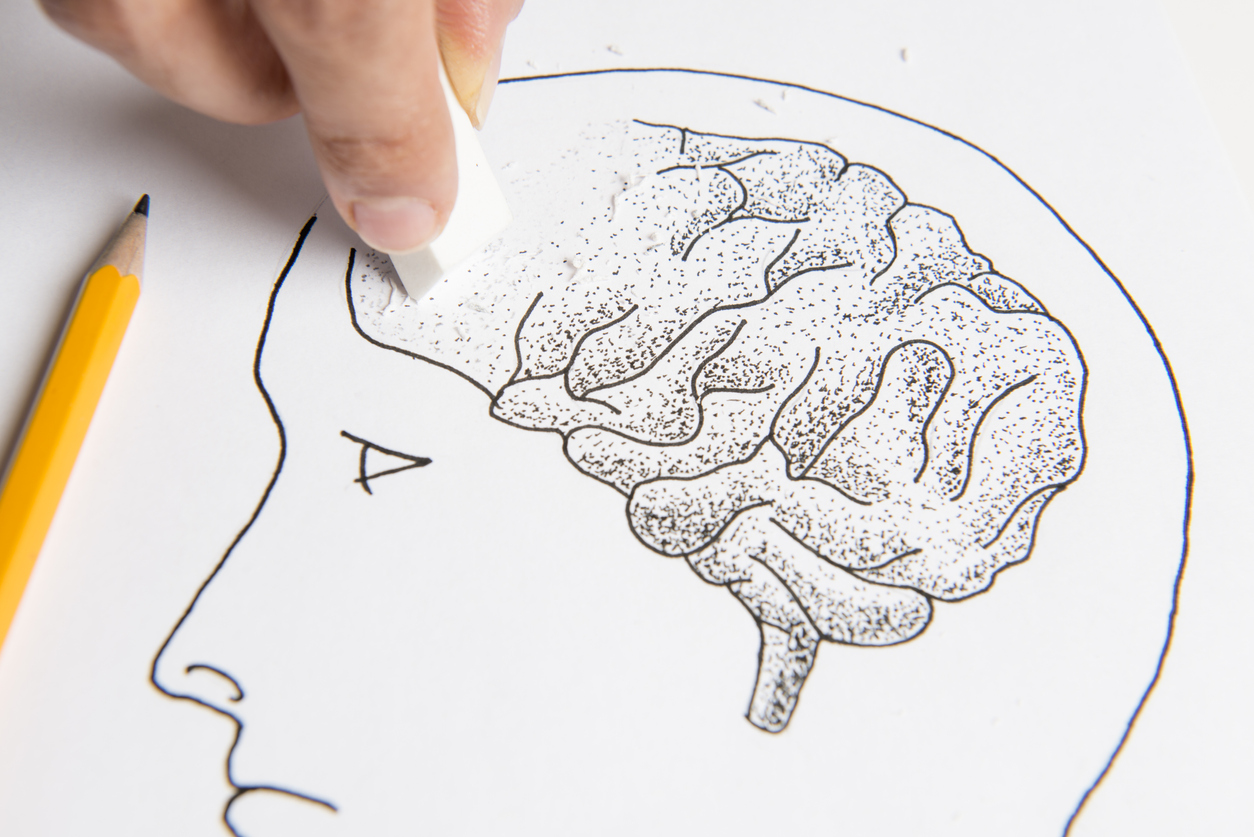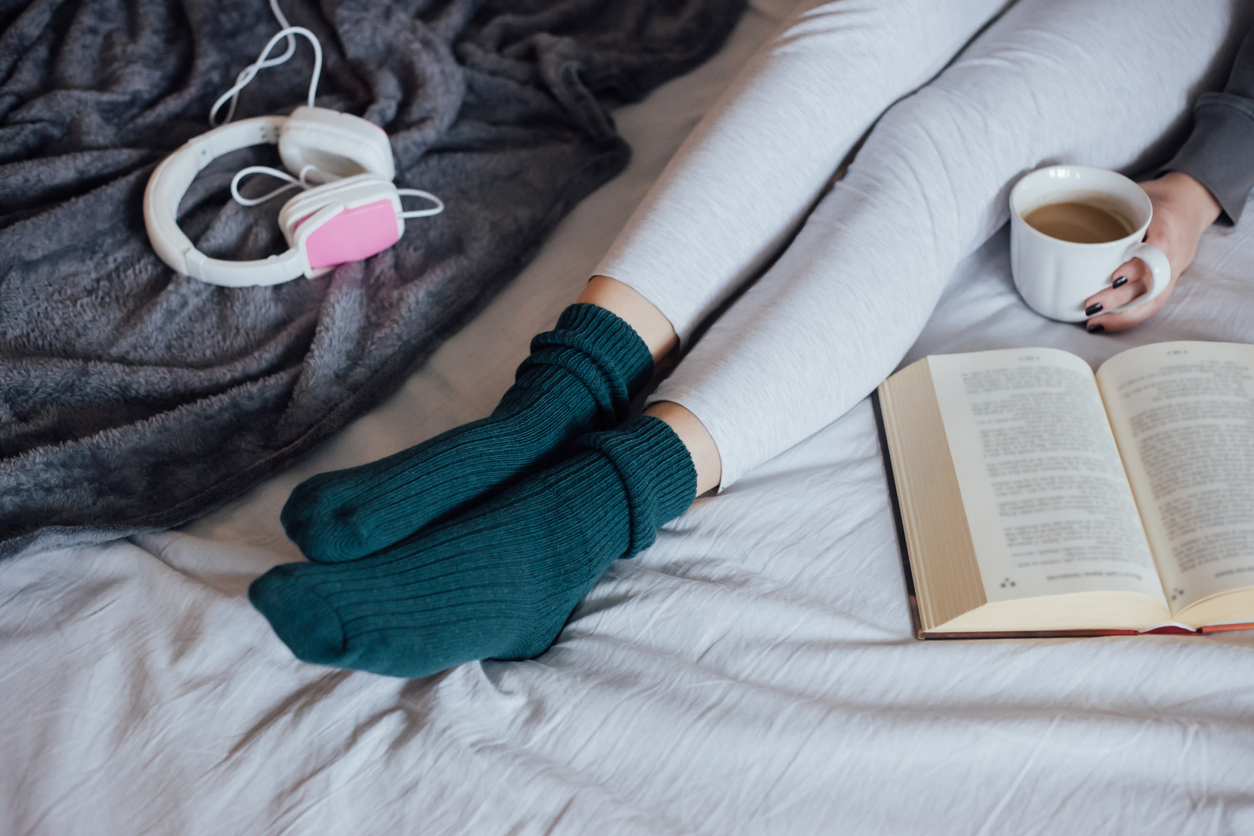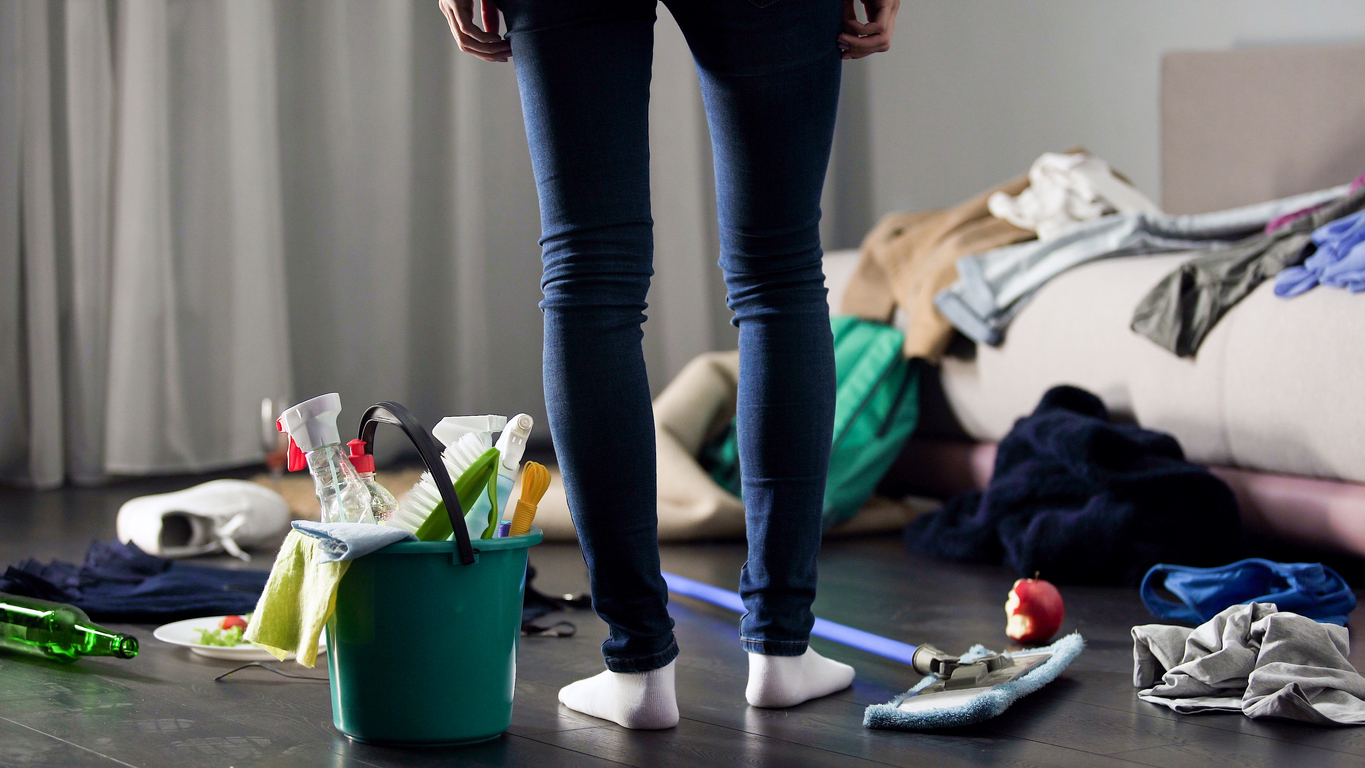If naughty behaviour didn’t feel great, no one would do it. Growing research suggests there’s no need to keep trying to lose bad habits – some could make you happier and healthier
1. Forgetting boosts memory
Neurologically, your brain needs to forget old, useless information in order to let new, important information in, says neurologist Dr John Medina, author of Brain Rules (Amazon, £8.39). ‘Forgetting allows us to prioritize the importance of events. Memories irrelevant to our survival would take up wasteful brain space if we remembered them all, so we forget them, in order to remember the things we really need.’
How to: ‘The best way to remember what matters is to repeat new information either to yourself or in written form a few times,’ says Dr Medina. Once you’ve done that, your brain will automatically filter your brain for something useless to forget so you can process (and remember) the new information. ‘The key to remembering something is repeating it,’ said Medina.
2. Being lazy makes you live longer
More sleeping, fewer working hours and less extreme exercise are key to a longer life. That’s been the mantra of public health scientist Professor Peter Axt for years since he did research on animals that found those who did less lived longer. What’s more, being lazy could also make you more successful, says Peter Taylor, author of The Lazy Project Manager (Amazon, £12.01). ‘Research has shown that only 20 per cent of what you do during your day really matters to the outcome of your work, the rest is a waste of time. By working long hours to answer every email and staying stuck in ‘busy-ness,’ it’s easy to lose sight of that and not get what really matters done’.
How to: ‘Waste half your free time,’ says Professor Axt. ‘people who take a midday nap instead of playing squash have a better chance of living into old age.’ But he does advocate moderate exercise and a healthy diet, so don’t park on the sofa just yet. To become more ‘strategically lazy’ at work Peter Taylor suggests three steps:
‘1. Give yourself time to reflect every morning on what is important that you have to get done that day.
2. Give distractions the brush off politely by ignoring or passing on emails that are not relevant to you and smiling sweetly to colleagues as you say ‘no’ to requests that aren’t essential.
3. Think about what you’ve learned at the end of every project. Being successfully lazy means you never make the same mistake twice which saves time, angst and most importantly, effort.’
3. Swearing eases pain
Gordon Ramsay is on to something. The reason you feel so much better after shrieking ‘F**k, f**k, f**k!’ is because swearing actually eases physical pain, found researchers from Keele University’s School of Psychology. ‘In swearing, people have an emotional response, and this triggers the reduction of pain,’ said researcher Dr Richard Stephens.
How to: Save it up. The researchers also found that swearing reduced the perception of pain more strongly in women who swore less than in men who swore more. So rather than throwing around obscenities daily, wait until the moment you really need them and they’ll make you feel better!
4. Negative thinking makes you happier
Thinking too positively all the time is only a temporary quick fix, says Gael Lindenfield, psychotherapist and author of The Emotional Healing Strategy (Amazon, £7.69). ‘The more you suppress a negative feeling, the deeper the emotional crisis you might end up with. If you repress negative thoughts continuously, you could end up with so much unrecognised sadness that you become depressed and cynical – far harder to deal with than the occasional negative thought’.
How to: Don’t wallow in sadnesses, says Dr Robert Holden author of Be Happy : Release the Power of Happy in You (Amazon, £10.99). ‘But do listen to what your negative thoughts are trying to tell you. Address the thought by sitting quietly, taking a few deep breaths and observing it,’ says Holden. Don’t put a positive spin on the thought distract yourself to feel better. ‘Now think of the unhappiness as an internal memo. What’s it trying to tell you? Is it your work? Or is it about having to cook five nights in a row while your partner watches telly? Once you have calmly observed your feelings, it’s easier to act logically towards changing their cause’.
5. Coffee prevents dementia
Can’t give up your daily cup or three or Costa’s finest? Research suggests you don’t need to. A large scale study of 1400 adults found that drinking coffee in your 30s and 40s could reduce your risk of developing dementia, in particular Alzeimher’s Disease in later life, by 65 per cent.
How to: ‘Three to five cups daily is associated with a reduced risk of dementia’, says Dr John Stanley, a lecturer in biochemistry at the University of Oxford. ‘That’s around 3-500milligrams of caffeine a day’. Typically, a cup of instant coffee contains 75 mg of caffeine, brewed 100 mg, an espresso shot or latte 100 mg and a cup of tea, 50 mg.
6. Sleeping in boosts matobolism
A lie-in may help you lose weight. Sleep is essential in balancing hormones such as insulin, cortisol, leptin and ghrelin responsible for the moderation and regulation of appetite, fat and metabolism. In fact, one large scale study at Ohio’s Case Western reserve University followed nearly 70,000 women for 16 years and found that women who slept five or fewer hours a night were 30 per cent more likely to put on at least 15 kilograms compared to those that got adequate sleep.
How to: Most experts agree that going to sleep at the same time every night and waking up at the same time each morning is the best case scenario when it comes to beneficial sleep. ‘But real life can be more demanding with shift work and long work hours,’ says Charlotte Watts nutritionist and co-author of The De-Stress Diet (Amazon, £9.09). ‘The time when you want to sleep more will be dictated by your unique ‘circadian rhythm’ or internal body clock. If you find you need an extra hours’ sleep in the morning and it suits your work and life commitments, then take it. Not everyone is an early riser!’
7. Avoiding the housework prevents allergies
If you hate cleaning, research suggests it’s not the saintly duty it’s cracked up to be. A study of 14,000 children from Bath and Brunel universities found that women who used a lot of chemical-laden cleaning products such as bleach and air-freshener during pregnancy of after giving birth were increasing their child’s risk of developing asthma, wheezing and allergies. It also found that exposing kids to such chemicals in early life increased their chances of developing asthma by 41 per cent by the time they were seven. ‘Some believe our immune system, which is primed to fight off regular infections, goes awry in a modern sanitised environment,’ said Dr Elaine Vickers of Asthma UK. ‘This could be leading to increased rates of allergies and asthma.
How to: When you do clean, try and use fewer chemicals. We love Method, cleaning products that are chemical-free and eco-friendly (see methodhome.com). If you suffer from night or morning allergies, try leaving your bed unmade. Experts at Allergy UK say this can help any moisture your body has generated overnight dry out as dust mites, which cause allergies, love a moist bed environment.
8. Daydreaming helps problem-solving
Love drifting off? Your brain is much more active when you daydream than you might think. A study published in the Proceedings of the National Academy of Sciences found that during a good old mind wander, areas in the brain associated with complex problem-solving buzz with activity.
How to: Save daydreaming for routine tasks, such as doing the washing up, rather than during work or driving! ‘Our brains are much more active when we daydream than when we focus on routine tasks,’ says Dr Kalina Christoff, a psychologist who worked on the research. ‘When you daydream – you may not be achieving your immediate goal, such as reading a book or ironing – but your mind may be taking that time to address more important questions in your life, such as your career or relationships – so don’t stop yourself.’
9. Gossip soothes anxiety
Who doesn’t feel noticeably better after a bit of chat-fest with the girls? Blame it on your hormones. A good goss increases our levels of progesterone, a hormone that reduces anxiety and stress and promotes good sleep, suggests research carried out in June this year on 160 students at the University of Michigan.
How to: The secret to the kind of gossiping that can benefit your health (as opposed to the kind that can get you into fights) is to focus on emotionally bonding and exchanging intimate details of your life. In the study, women who asked eachother chatty questions about eachother, rather than boring or serious questions on more ‘intellectual’ subjects, had closer bonding and increased progesterone levels.
More Healthista Content
8 daily habits that are ruining your eye health
10 everyday lifestyle habits that are ruining your gut health
6 ways to stick to your healthy eating habits at Christmas (without being a bore)
Like this article? Sign up to our newsletter to get more articles like this delivered straight to your inbox.






























































